Cooking 100 Meals a Month for the Hungry;
A Template for Expanding the Work Broadly
Written by: Sally Zenka Metcalf
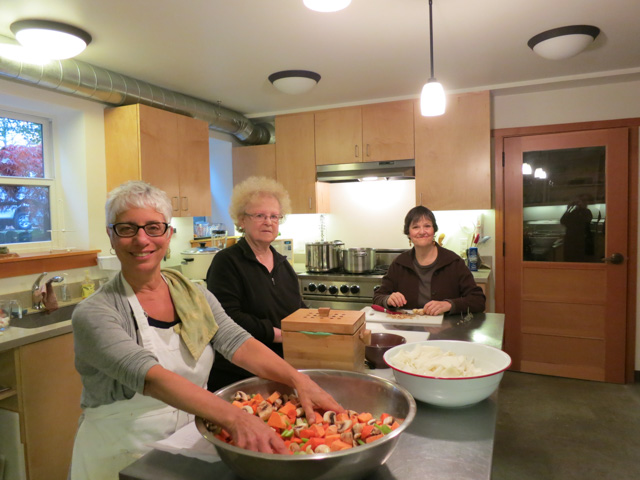
100 Meals cooks in the zendo kitchen left to right, Dee Seishun Endleman, Anne Sendo Howells and Sally Zenka Metcalf.
Photos by: Valerie Blake, Steve Hanson, Jay Seiho Morris, Polly Trout
When a group of friends at Chobo-Ji Zen Practice Center heard about the nutritional shortcomings of food offered to homeless people, they decided to make a solid culinary difference for the hungry. Thus their 100 Meals Program was born.
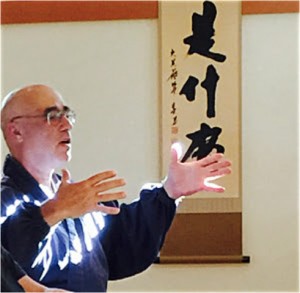
Genjo Marinello Osho, abbot of Chobo-Ji Zen Practice Center and sometime chef with the 100 Meals cooking crew.
Since June of 2015, volunteers from Dai Bai Zan Cho Bo Zen Ji (a Rinzai Zen temple in the heart of Seattle), have been cooking nutritionally-complete vegan and gluten-free entrees twice monthly in their zendo kitchen
The meals are then donated to programs that feed homeless neighbors. Polly Trout, founder and executive director of Patacara Community Services, picks up the packaged and frozen entrees and distributes them to programs like Teen Feed, Friends of Youth, Auburn Youth Resources, Peace for the Streets by Kids From the Streets (PSKS), Renton REACH, Mary’s Place, and Tent City three.
Chobo-Ji’s kitchen crew – Dee Seishun Endleman, Anne Sendo Howells and Sally Zenka Metcalf – have committed to continue cooking together twice monthly for all of 2016. During the year they will produce 1,200 high-quality, delicious, nutritionally-dense servings of vegan main dishes.
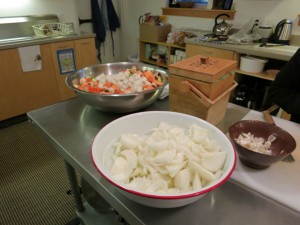
Delicious preparations for a vegan stew. A typical vegetarian recipe serving four to six multiplied by10, makes enough for 50 nutritious meals.
Each meal is laden with colorful vegetables, with the team preparing dishes like curried lentil stew, creole rice and beans, and rice and veggie casserole. To prepare this great food, 100 Meals spends about $160 monthly, a modest $1.60 per meal made possible by the natural economy of vegan cooking. The money comes from individual donors at Chobo-Ji, and from Patacara.
“The wonderful thing about the 100 Meals Program is that their food is of the quality you’d serve to your own family or to a special guest,” Trout said. “It’s prepared with love, following Dogen’s famous instructions to the cook.”
(Dogen Zenji, a famous 13th century Japanese Zen master and poet, was the founder of the Soto school of Zen Buddhism.)
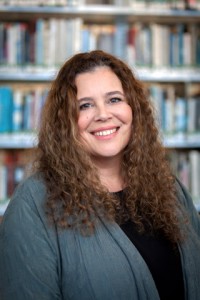
Polly Trout, director of Patacara Community Services, distributes some of the food to human service and youth groups.
In his book “Instructions to the Cook: A Zen Master’s Lessons in Living a Life that Matters,” Zen author Bernie Glassman uses Dogen’s precepts to talk about his own social justice work with people who’ve experienced poverty and homelessness in New York. The book has inspired many in their compassionate action work here in Seattle, including Genjo Marinello, the abbot of Chobo-Ji.
Genjo is from an Italian-American family and recently helped the 100 Meals Program cook an enormous batch of his sangha’s favorite Pasta Marinello. Drenched in Osho’s marinara sauce with meatball-sized chunks of vegetables, the steaming pasta was served at Teen Feed in January, to the delight of 65 homeless youth and young adults.
“We hope this article inspires other sanghas to put their kitchens into action for the hungry people who live near them,” say Chobo-ji’s cooks.
How to cook meals for people in need
Here’s some handy how-to information, and a link to several delicious tried-and-true recipes for 50 to help folks get started.
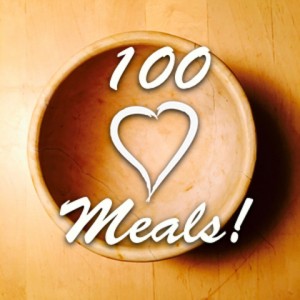
Love and food combine in the 100 Meals program.
Our recipes come from great vegetarian cookbooks and are almost always multiplied by 10 to get 50 meals. We throw in a big batch of rice, if it isn’t built into the recipe already. We package our meals either in zip-lock gallon freezer bags or in lidded tin casserole pans from Costco, depending on whether the dish is soupy or more solid. That adds up to eight or 10 plump gallon bags of scrumptious vegan fare, a cup and a half per person on average.
Our recipe goes along with the food, so servers know what’s in the meal and can inform diners who have food sensitivities. Shopping, prepping, cooking, packaging and clean-up takes two or three of us between 20 and 25 hours a month.
To make meals of high nutritional value, we emphasize quality ingredients, plenty of fresh veggies, as well as high and complete protein. We don’t know when or where our homeless neighbors will get their next meal, so we make our meals count!
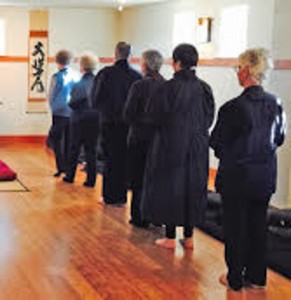
The cooks and others doing walking meditation (kinhin) in the Chobo-Ji zendo.
Chobo-Ji’s late founding abbot, Genki Takabayaki Roshi, used to say, “Our vow is to care for all beings everywhere, always.”
Sangha has no border including some and leaving others out; no table where some are served and others left hungry.
It’s remarkably easy to prepare 100 meals a month, and we feel like a million bucks doing it! There must be many handy Buddhist kitchens in the Northwest, sitting idle, complete with enthusiastic cooks skilled at preparing food for large groups.
How simple it would be for 100 Meals to become 1,000, or more! It just takes a few caring people to create their own monthly program for feeding 100 hungry bellies, a deep-dish helping of warm dharma love.
If you have questions or want to share what you are doing to feed the hungry in your Northwest communities, contact Dee at dee@keysconsult.com or Sally at metcalf.sally@gmail.com or Polly at polly@patacara.org.
